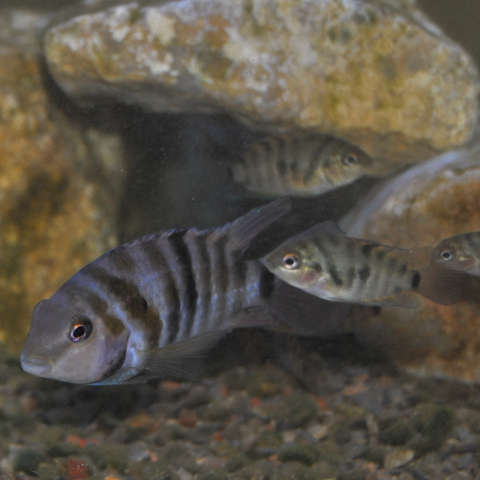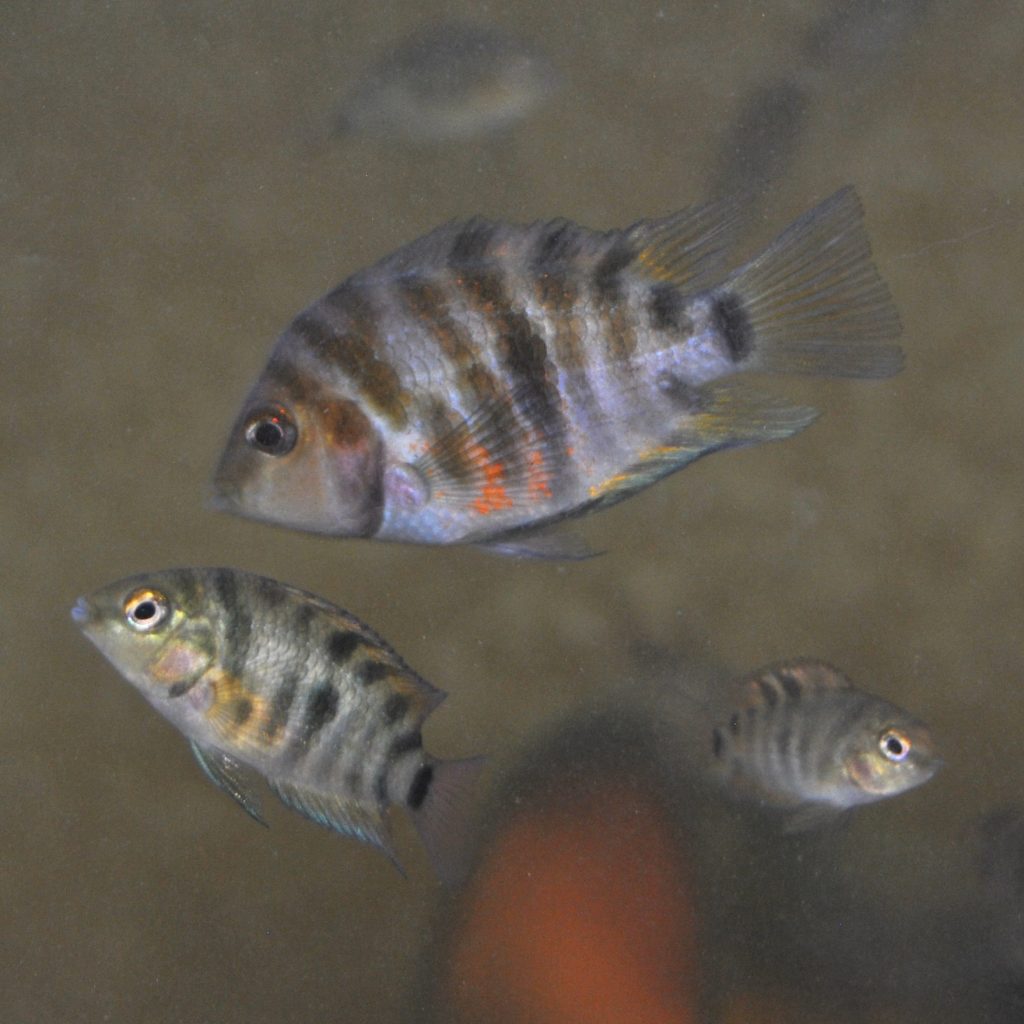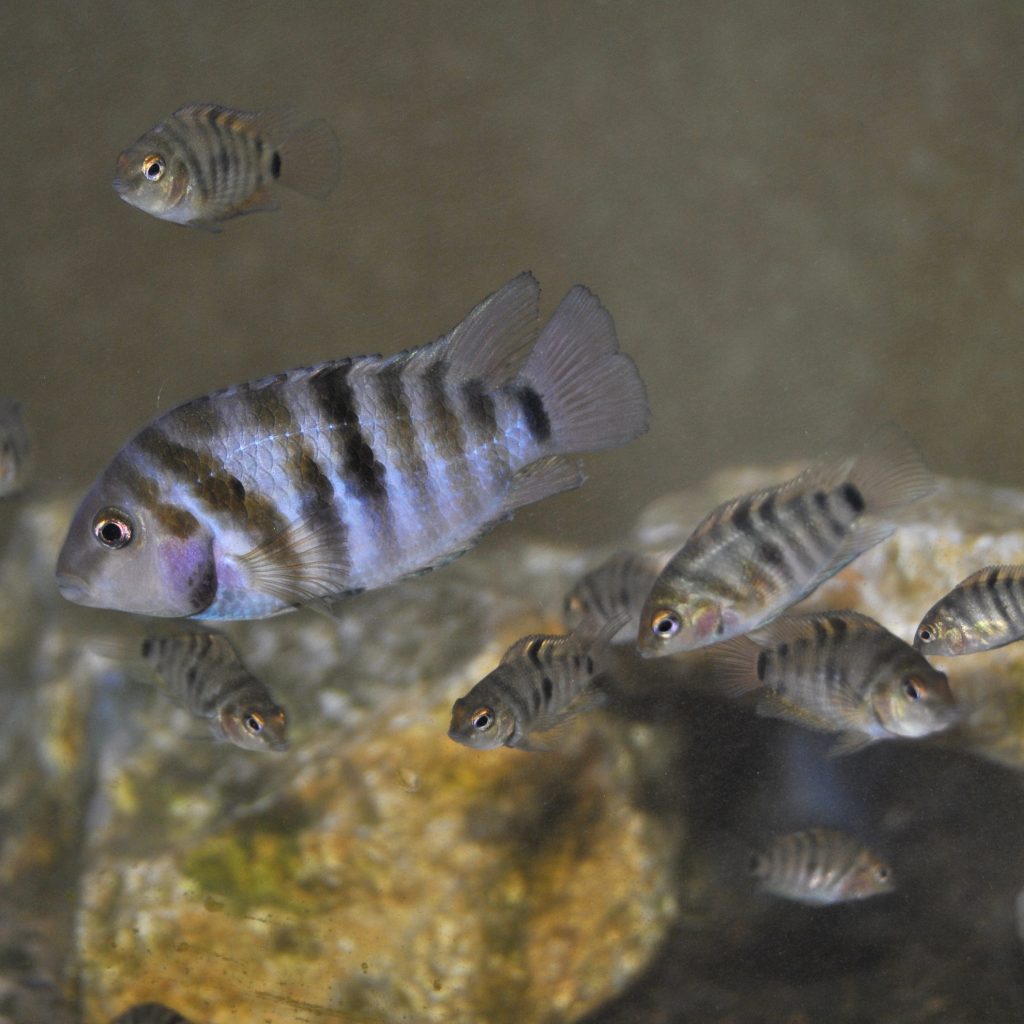Convict Cichlid Care Sheet
- Family: Cichlidae
- Scientific Name: Amatitlania nigrofasciata
- Common Name: Convict Cichlid, Black Convict Cichlid, Zebra Cichlid, Convict
- Appearance: Vertical lines make this cichlid easy to recognize. Females tend to be smaller than males and have more intense coloration. Pink Convict Cichlids and White Convict Cichlids have also been introduced into the hobby.
- Size: Male 6 inches (15cm), female 4 inches (10cm)
- Temperament: Aggressive
- Care Level: Easy
- Diet: Omnivore
- Water Temperature: 79–84°F (26 – 29°С)
- Water pH: 6-8
- Water hardness (dGH): 6-8
- Minimum Tank Size: 30 gallon or larger
- Lifespan: Approximately 8 years
The biggest problem with Convict Cichlids is that they are easy to care for, easy to breed, produce lots of fry and live for a long time.
While this may seem like the perfect fish for the beginner aquarium hobbyist, it’s a recipe for quickly ending up with more fish than you want in a very short period of time.
Breeding Convict Cichlids

Convict Cichlids are one of the easiest egg laying aquarium fish to breed. The convicts usually like to lay their eggs near a cave made of flat rocks or a flowerpot turned on it’s side. They will usually lay their eggs on a flat rock near or inside the cave and use the cave to help protect their fry once they are born.
While a pair of Convicts will live just fine in a 10 gallon aquarium they really need a minimum of a 30-40 gallon aquarium if they are allowed to breed as they will likely have lots of offspring. Mature Convict Cichlids can lay as many as 200 eggs.
Breeding is usually quite easy and is usually a matter of putting a mature male and a female in the tank together. Once the pair mate they are a pair for life.
Egg laying may be encouraged by very slowly raising the water temperature to 79°F (26°С) and later introducing a small amount of cooler water into the tank to simulate rainfall.
New parents often eat their first batch of eggs or fry however they usually learn how to take care of their offspring and become great parents.
Additional egg laying can be discouraged by raising the young fry with the parents.
Caring For The Fry
Once the eggs hatch (usually within 3-5 days) Convict Cichlids usually make great parents. Young fry will have a yolk sac that they feed on until they become free swimming.
Once the fry are able to swim on their own they can be fed crushed up flake food or baby brine shrimp. Just about any food small enough to fit in their tiny mouths will be accepted.
While the fry are young small amounts of food should be given often if possible.

Female Convict Cichlid with fry 
Male Convict Cichlid with fry
